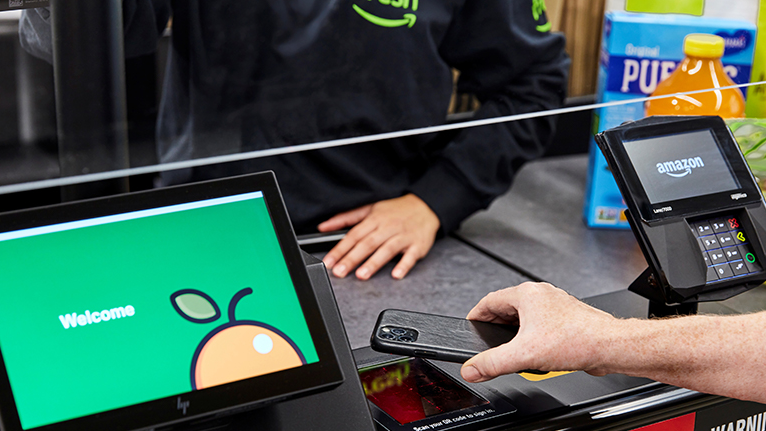
COVID-19 is changing industries worldwide -- one of the most notable being how Americans shop.
While stores across the U.S. have implemented guidelines such as social distancing and installed physical barriers between shoppers and cashiers, several, more subtle, changes are taking place with consumer habits and interests.
Contactless shopping, the elimination of samples, less browsing ,and a greater focus on expedited purchasing, are some of the ways stores across the country are changing, The Washington Post reported.
With shifts to more online grocery shopping, and advertisers adjusting accordingly, the pandemic has "heightened" disparities between low-income and high-income families, Dariush Mozaffarian, a cardiologist and dean of Tufts University's nutrition science school told the Washington Post.
"There are two different reactions to COVID — a small number who are getting health conscious and reacquainting themselves with real food, and a larger group that is going with comfort food that is cheap and shelf-stable," he says, according to the Washington Post.
With the closing of many restaurants and more families focused on meals prepared at home, the disparities are becoming larger.
According to Census data, the Washington Post reports U.S. families spent an average of $455 a month on groceries in July 2020, a 10% increase from July 2019.
While shoppers are spending more at the grocery store, research by the food industry trade group FMI, shows the amount of time people are spending at the store has decreased.
More people are following lists with essential items they know and trust rather than browsing and trying new things.
What are some other ways the shopping habits of Americans have changed during the pandemic?
Here are five highlights from Big Red Rooster, a brand experience firm owned by real estate services company JLL, according to CNBC.
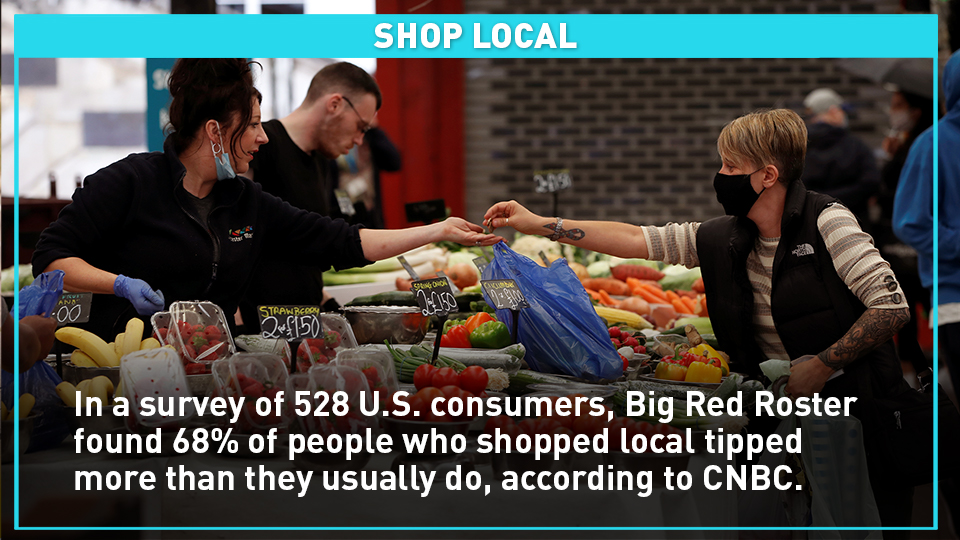
Click to read to read more
Click to read to read more
1. Shop local
The pandemic has encouraged many shoppers across the U.S. to support local businesses.
In a survey of 528 U.S. consumers, Big Red Roster found 68% of people who shopped local tipped more than they usually do, according to CNBC.
Emily Miller, Vice President of Strategy & Insight at Big Red Rooster says the pandemic has made more people realize their appreciation for local shops.
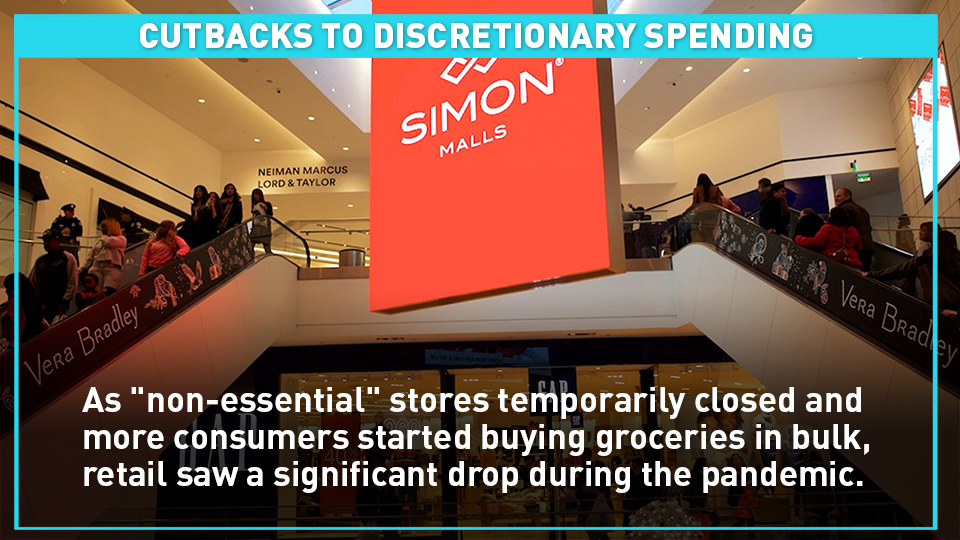
Click to read to read more
Click to read to read more
2. Cutbacks to discretionary spending
With the temporary closing of "non-essential" stores like Macy's and Best Buy back in March, and more consumers shopping at grocery stores and stocking up on essential items, retail saw a significant drop during the pandemic.
Coupled with historic unemployment rates, experts predict consumers will still be wary of buying "non-essential" items for a while even as stores reopen and resume business in the U.S..
Retailers will also need to adapt to the changes in spending habits by shoppers.
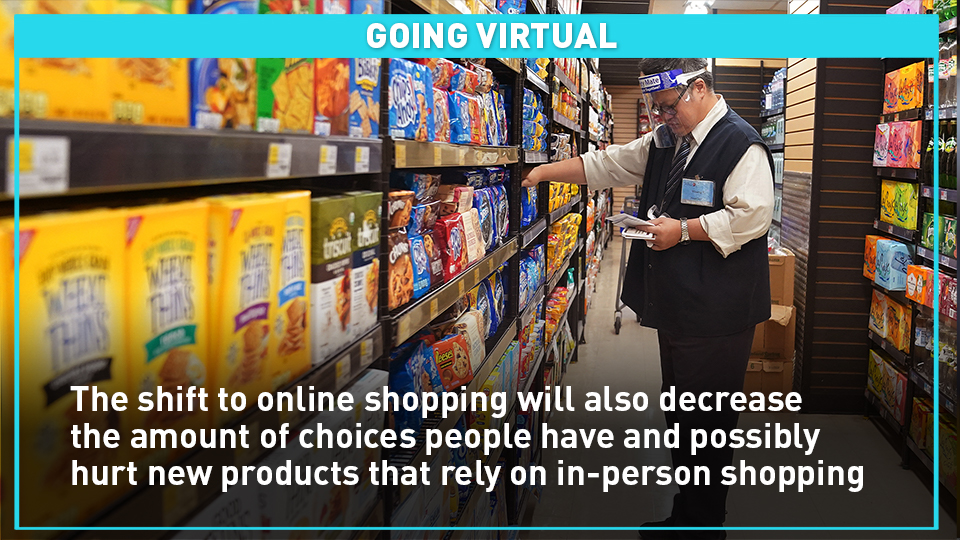
Click to read to read more
Click to read to read more
3. Going virtual
Online shopping was popular before the pandemic but it’s booming even more during COVID-19.
Big Red Rooster says companies will need to find better ways to show their inventory online.
But this shift to online shopping will also decrease the amount of choices people have and possibly hurt new and up and coming products and companies that rely on in-person shopping, according to the Washington Post.
Food companies are focusing on producing more of their top-selling items rather than launching new flavors or brands.

Click to read to read more
Click to read to read more
4. Brand loyalty
Consumers are not only buying and re-purchasing brands they already know and use but are also supporting brands that are encouraging health and safety during the pandemic, Emily Miller at Big Red Rooster told the Washington Post.
And for those that are shopping in-person, cleanliness and the treatment of employees are also a concern for consumers.
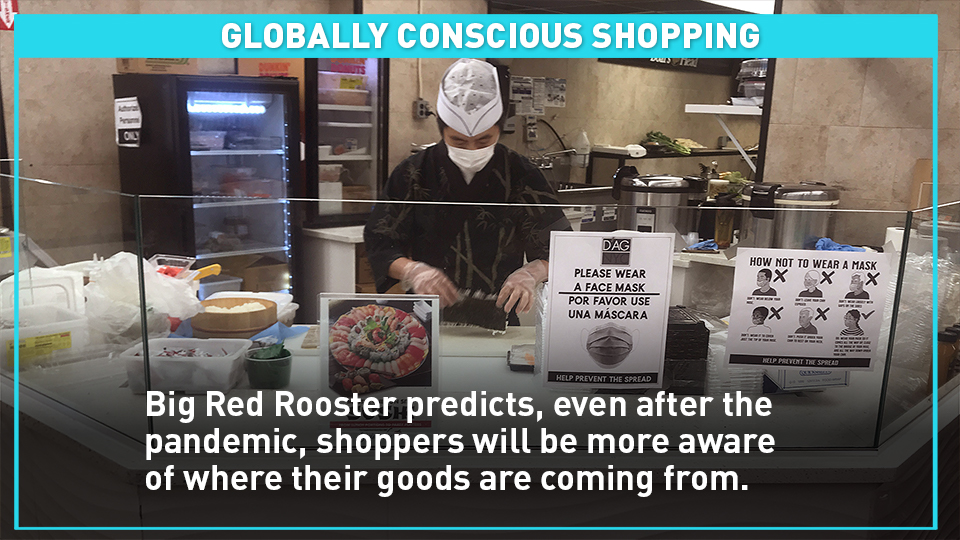
Click to read to read more
Click to read to read more
5. Globally conscious shopping
Big Red Rooster predicts, even after the pandemic, shoppers will be more aware of where their goods are coming from.
The firm points out retailers will need to be more transparent about their supply chains.
Check out The China Report, our new weekly newsletter. Subscribe here!